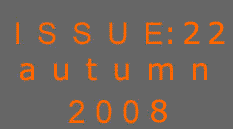
Two or three things the nuclear industry could have taught Wall Street

by Andrew Teller
Like anybody not familiar with financial matters, I have been surprised by the turmoil affecting the world’s stock exchanges and the banking system. This disaster, triggered by the failure of the sub-prime scheme, could still entail a global collapse of the economy. Being more familiar with nuclear matters, I have been struck by the parallels that can be drawn between the current financial troubles and a nuclear accident. Apart from the obvious fact that both can be extremely costly, both owe their potential impact to a chain reaction: the bankruptcies propagate in a way that is reminiscent of the fission of nuclei under the impact of neutrons. In addition, in both cases it can be said that a nuclear accident/bankruptcy anywhere is a nuclear accident/bankruptcy everywhere. Drawing similarities goes only so far, but there is one point that, in my view, really deserves to be made. Most of the present economic woes could have been avoided if the fancy financial instruments that triggered them had been designed in accordance with safety principles in force in the nuclear industry. The safety principles I have in mind are the following:
-
Make sure there is an independent body to supervise innovation: the banking sector is highly regulated in most of its areas of activity. However, when it comes to innovation, the banking sector has always been one step ahead of the regulators. It is as though it was given a free rein to implement new responses to stimulate growth. This is nonsense. Vested interests can seriously harm decision making and the system offered enormous rewards to the daring. The nuclear industry on the other hand is supervised by national safety authorities. Their brief is to make sure that designers and operators will comply with the safety rules in force not only in their routine activities but also regarding any innovation they intend to implement. Changes must be submitted to their approval and they examine any proposal with a questioning mind. Their goal is not to redesign the new systems submitted, but to make sure that the designer are complying with the rules.
-
Design new instruments so that they can withstand accidents: this is the most fundamental principle of nuclear engineering. What determines the features of a nuclear reactor is its need to be able to withstand the consequences of a series of postulated, credible accidents. The sub-prime system was bound to work well as long the price of houses was increasing and the interest rates remained low. It did not require a leap of the imagination to consider the possibility of the prices of houses going down and that of the interest rates going up. It appears that the simple exercise of figuring out what would happen in such case was not attempted. This was presumably because the designers of the sub-prime systems would not have liked the conclusions they would have been obliged to draw from it
-
Implement traceability: let us take the example of nuclear fuel. All the materials contributing to the fabrication of fuel assemblies must be in perfect condition to avoid failures, i.e. radioactivity releases. When a given component in a given fuel assembly fails, it is extremely useful to be able to trace all the other fuel assemblies containing components coming form the same ingot or machined on the same machine tool for further inspection or, should the need arise, repair or recall. Traceability is also a common feature of car manufacturing for the same obvious safety reasons. It appears again that there is no hope of being able to trace how the sub-prime debt is poisoning the whole financial system.
Perhaps the most important lesson to be drawn from the past events is that world finance has become a highly complex system that must be managed according to principles apportioned to the risks incurred in case of malfunction. Nuclear power generation has been recognised right from the beginning a complex system governed by rules aiming to limit the consequences of possible malfunctions. Perhaps could the world of finance benefit from the expertise accumulated by the nuclear industry over the last fifty years.
|

